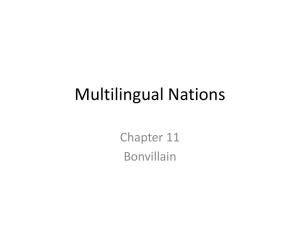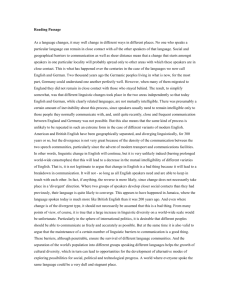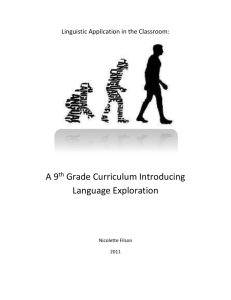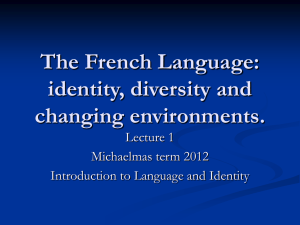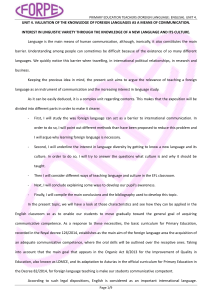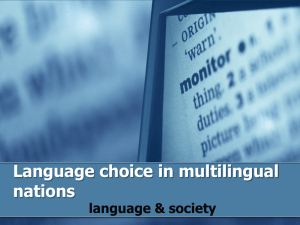Personhood and Linguistic Ideology, Purism and Variation in New
advertisement
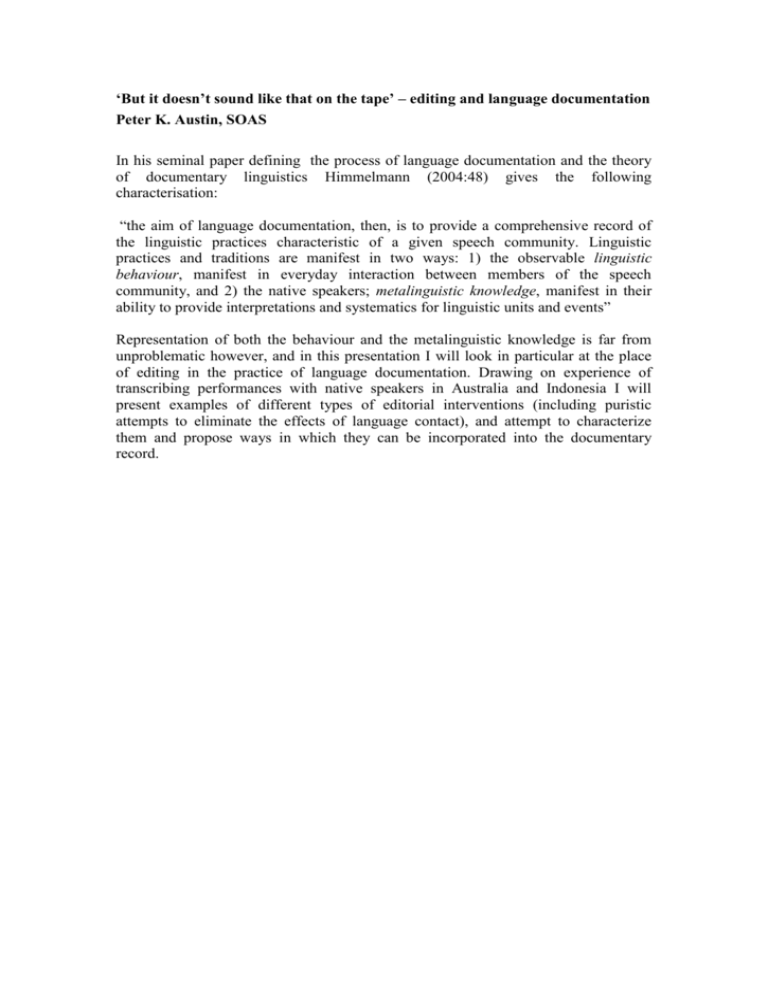
‘But it doesn’t sound like that on the tape’ – editing and language documentation Peter K. Austin, SOAS In his seminal paper defining the process of language documentation and the theory of documentary linguistics Himmelmann (2004:48) gives the following characterisation: “the aim of language documentation, then, is to provide a comprehensive record of the linguistic practices characteristic of a given speech community. Linguistic practices and traditions are manifest in two ways: 1) the observable linguistic behaviour, manifest in everyday interaction between members of the speech community, and 2) the native speakers; metalinguistic knowledge, manifest in their ability to provide interpretations and systematics for linguistic units and events” Representation of both the behaviour and the metalinguistic knowledge is far from unproblematic however, and in this presentation I will look in particular at the place of editing in the practice of language documentation. Drawing on experience of transcribing performances with native speakers in Australia and Indonesia I will present examples of different types of editorial interventions (including puristic attempts to eliminate the effects of language contact), and attempt to characterize them and propose ways in which they can be incorporated into the documentary record.


